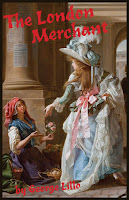January 18th, 201211:28 am
Rating: 5 stars
1. ditto
I too was hesitant to attend a play so far out of the way for me. I was exhausted that evening, but completely forgot how tired I was about 10 minutes into the play. As a woman, I saw the life difficulties that led the temptress to her decisions...maybe she went further than the 10 commandments would permi, but hey, don't try to keep a good woman (some would quibble) down. Nonetheless, the play was filled with tension and enough surprises that it kept me fully involved and the 2 hours and change went quickly.
— Riley, NYC
January 19th, 20121:10 pm
Rating: 5 stars
2. Pleasantly Surprised
I saw the show because I had read the play in a theatre history class and was intrigued that someone was producing the show. The show was very good and had aged very well. The pacing was great, the language clear, and the themes felt very modern. There was not a weak actor in the company and they tackled difficult language and made it accessible. The staging and direction was clear without any gimmicks and the production values were high. The Storm Theatre and The Blackfriars Theatre company have done a great job in producing this show. Everything was very professional and first rate. It is nice to see independent theatre that is different and great.
— John M, New York, NY
January 22nd, 20121:24 pm
Rating: 3 stars
3. dress warmly
The theater in the church's basement was very cold -- there seemed to be very little or no heat.
Acting was good.
— marriane, easton, pa
January 23rd, 201210:28 am
Rating: 5 stars
4. Echoing the accolades
It really was a joyous event to discover such excellent stage actors and an 18th century play that truly has great relevance to our times. Millwood's diatribe about hypocrisy was stunning.Thanks to everyone for their feedback.
— parknyc, NYC
Have you already seen The London Merchant? Write the Times and let them know what you think!







